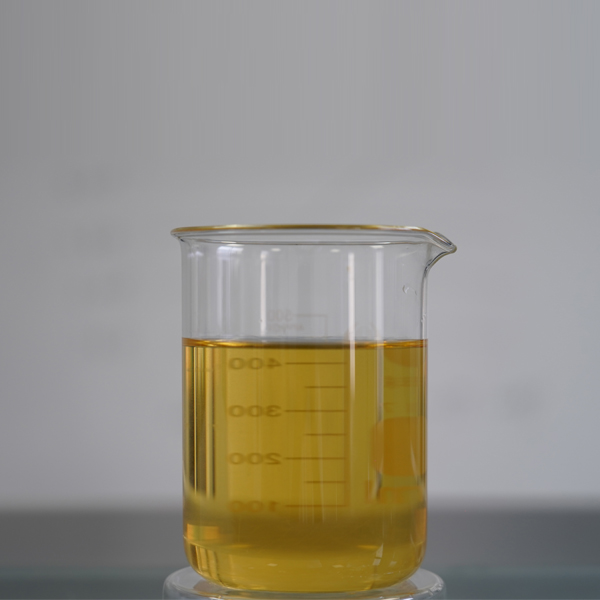
News
Dec . 05, 2024 06:25 Back to list
Nature's Organic Chelator Production in Soil Using Fulvic Acid Technology
The Earth's Chelator A Deep Dive into Fulvic Acid
Fulvic acid, a remarkable organic compound found in soil and decomposed organic matter, is often hailed as one of nature's most potent chelators. This fascinating substance plays a crucial role in the environment, particularly in the sustainability of ecosystems and the enhancement of soil health. In this article, we will explore the origins, properties, benefits, and applications of fulvic acid, emphasizing its significance as Earth's natural chelation factory.
Origins of Fulvic Acid
Fulvic acid is formed through the natural process of humification, where organic matter decomposes over time. This process involves a variety of microorganisms that break down complex organic materials into simpler compounds. Fulvic acid is the least complex and the most soluble fraction of humic substances. Typically found in the top layers of soil, fulvic acid is a byproduct of this decomposition and is integral to the nutrient cycle, contributing to the fertility and health of the soil.
Chemical Properties
What sets fulvic acid apart is its unique chemical structure. It comprises a complex mixture of organic acids and has a high degree of oxygen-rich compounds, making it highly reactive and effective in binding with minerals and nutrients. This reactivity allows fulvic acid to chelate, or bond with, various metallic ions in the soil—including essential elements like iron, calcium, magnesium, and potassium. By doing so, it enhances nutrient availability for plants and microorganisms, facilitating healthier growth and development.
Benefits in Agriculture
The benefits of fulvic acid are numerous, particularly in agriculture. When applied to crops, it improves nutrient absorption by plants, enhances soil structure, and promotes microbial activity. Its chelating ability ensures that micronutrients remain soluble and available for uptake. This is especially crucial in soils with low organic matter or high nutrient locks, where plants struggle to access essential nutrients.
Additionally, fulvic acid acts as a natural growth stimulant. It encourages root development, increases resistance to environmental stressors, and enhances overall plant health. These benefits translate into increased crop yields, improved quality of produce, and reduced need for synthetic fertilizers, making fulvic acid a sustainable and environmentally friendly option for modern agriculture.
the earth's chelator fulvic acid factory

Environmental Significance
Beyond agriculture, fulvic acid plays a significant role in environmental health. It aids in soil restoration, particularly in contaminated areas where heavy metals are present. Fulvic acid can bind with these toxic metals, reducing their bioavailability and minimizing their uptake by plants and animals. This makes it a valuable tool for phytoremediation, the process of using plants to clean up polluted environments.
Moreover, fulvic acid helps in carbon sequestration. By promoting soil health and enhancing organic matter, fulvic acid contributes to the storage of carbon in the soil, aiding in the mitigation of climate change. As the world grapples with global warming and environmental degradation, the role of fulvic acid in supporting sustainable practices cannot be overstated.
Applications Beyond Agriculture
Fulvic acid has found its way into various applications beyond agriculture. It is increasingly popular in health and wellness, where it is marketed as a supplement due to its potential antioxidant properties and its ability to support cellular function. Proponents claim that fulvic acid can enhance nutrient absorption in the human body, improve energy levels, and boost overall health.
In the realm of water purification, fulvic acid can assist in removing contaminants from water sources, showcasing its utility as a natural flocculant. As researchers continue to explore its myriad applications, fulvic acid may prove to be a key player in various sectors, from agriculture and health to environmental management.
Conclusion
In summary, fulvic acid stands out as one of nature's most effective chelators, playing an essential role in soil health, agriculture, and environmental sustainability. Its unique properties enable it to enhance nutrient availability, stimulate plant growth, and mitigate pollution, making it a vital component of our ecosystem. As we continue to seek sustainable solutions to global challenges, the importance of this humble compound—a product of nature's chelation factory—will undoubtedly become increasingly recognized and valued.
-
Polyaspartic Acid Salts in Agricultural Fertilizers: A Sustainable Solution
NewsJul.21,2025
-
OEM Chelating Agent Preservative Supplier & Manufacturer High-Quality Customized Solutions
NewsJul.08,2025
-
OEM Potassium Chelating Agent Manufacturer - Custom Potassium Oxalate & Citrate Solutions
NewsJul.08,2025
-
OEM Pentasodium DTPA Chelating Agent Supplier & Manufacturer High Purity & Cost-Effective Solutions
NewsJul.08,2025
-
High-Efficiency Chelated Trace Elements Fertilizer Bulk Supplier & Manufacturer Quotes
NewsJul.07,2025
-
High Quality K Formation for a Chelating Agent – Reliable Manufacturer & Supplier
NewsJul.07,2025
